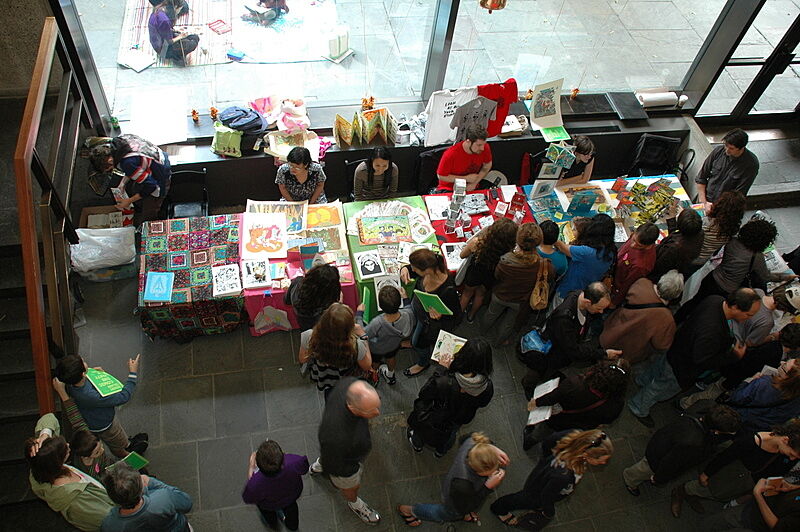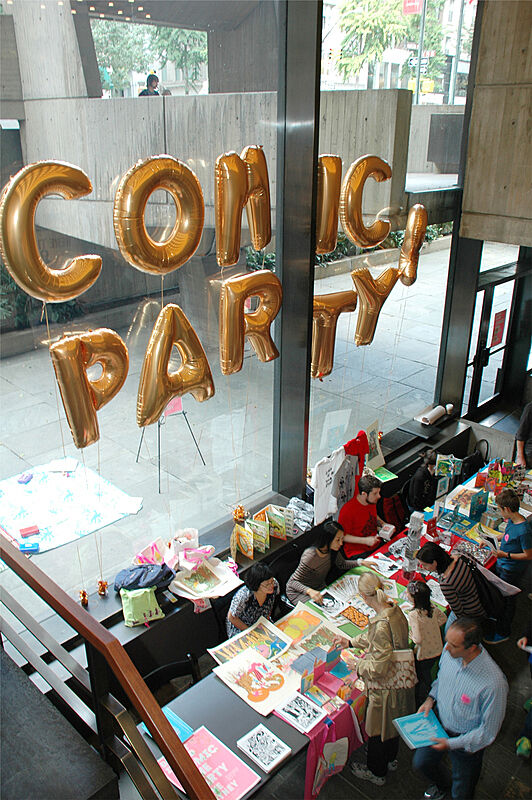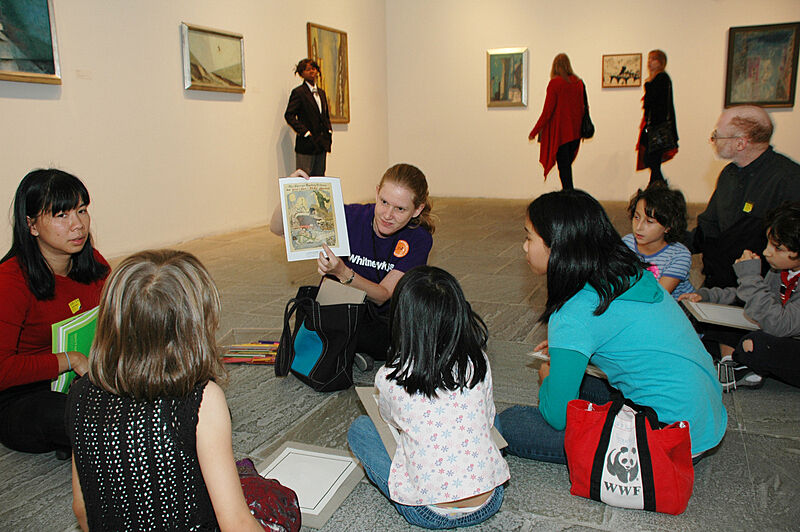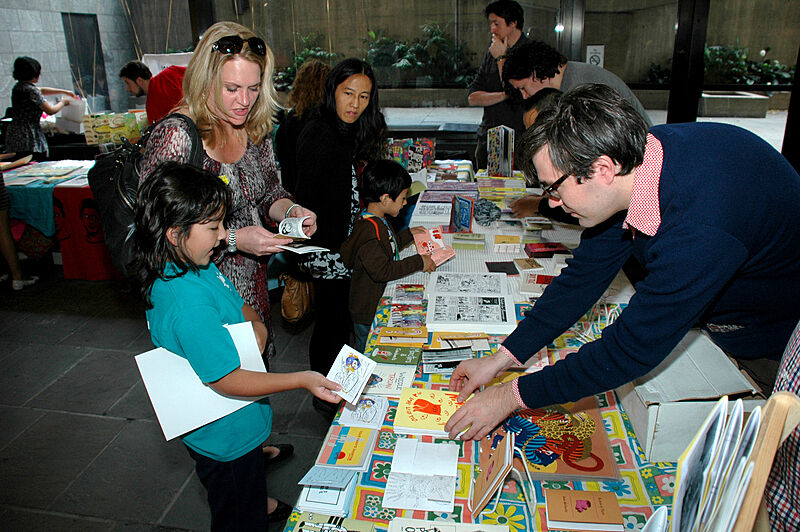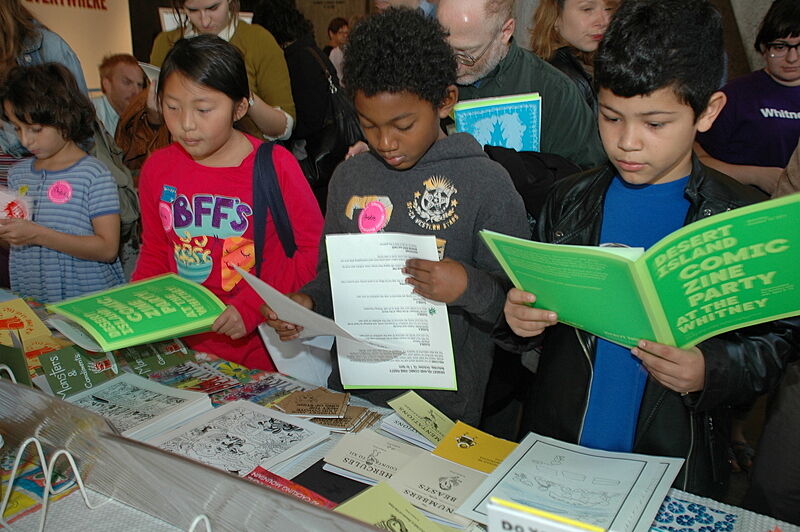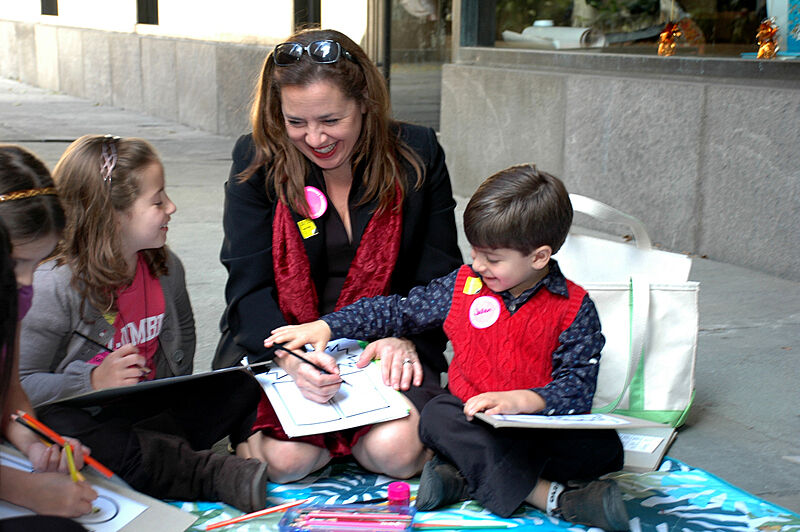Desert Island Comic Zine Party
Nov 28, 2011
At the Desert Island Comic Zine Party on October 15, 2011, kids and adults delved into comics old and new. To celebrate the end of the exhibition Lyonel Feininger: City at the Edge of the World, Whitney Family Programs partnered with Desert Island, an independent comic shop in Williamsburg, Brooklyn. After discovering Feininger’s pioneering comic strips in the galleries, families had a chance to meet contemporary illustrators and comic book artists.
Though known primarily for his crystalline paintings, German American artist Lyonel Feininger began his career as a cartoonist and illustrator. In 1906, he was hired to create comic strips for the American newspaper Chicago Sunday Tribune. In his first series, The Kin-der-Kids, Feininger recalls the adventures of three brothers as they escape their wicked aunt and cousin. In the Wee Willie Winkie’s World series, a boy wordlessly meanders through the countryside as it transforms into an anthropomorphic world: houses take on faces, trees become giant caterpillars, and a raincloud morphs into an old woman with a watering can.
The silhouettes, flat planes of color, and Japanese woodblock-inspired patterns that Feininger developed in these comics would later emerge in his paintings. Additionally, Feininger introduced innovative formal strategies—from narrative sequential panels to the use of borders as design elements—that serve as a foundation for today’s comic artists. The artist once admitted, “Only starting with the Kin-der-Kids and Wee Willie Winkie did a part of my own creativity emerge!”
Inspired by Feininger’s comics and characters, families made their own cartoons in the galleries. Museum educators were stationed at three locations throughout the exhibition, where they engaged families in conversation about the building blocks of Feininger’s comics: setting, characters, and text. Kids moved from one station to the next, incorporating each of these elements into their one-panel comics. Many kids borrowed Feininger’s own tropes, such as whimsical carnival-goers and sunset-dappled seascapes. Others pulled narratives from their imaginations: flying pig villains and magical fortresses prevailed in the action-packed panels.
Families wandered over to the comic book fair in the lower lobby to meet some of today’s contemporary illustrators. It wasn’t just kids enjoying the book fair; comic fans from far and wide congregated to see the work of local favorites such as John Mejias and Jungyeon Roh. Artists displayed and sold their wares, from zines and prints to buttons and tote bags. Each of the artists designed a limited-edition print, which kids were invited to collect and bind into a build-your-own comic book. When one girl asked an artist for his autograph, he surprised her by drawing her caricature on the back cover of a comic book.
The beautiful, crisp fall day took families outdoors into the Museum’s Sculpture Court. For those who just couldn’t get enough of the cartoon fun, comic strip templates and colored pencils were available for crafting free-wheeling tales. One kid had bigger plans for his comics: “I’m going to add my comics to my book, right next to the artists’!”
By Desi Gonzalez, Education Assistant

